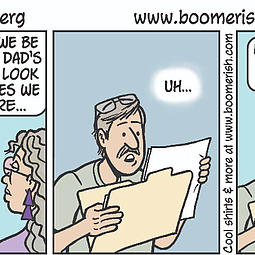Stop loan scammers and bogus bill collectors with these tips
October 21, 2014 at 12:00 a.m.
(BPT) - In the United States, federal and state consumer collection laws forbid debt collectors from using unfair, deceptive, and abusive means to collect debt. Unfortunately, that fact doesn’t stop scammers from using threats of arrest and jail time to coerce victims into paying bogus bills they don’t owe.
It’s just one of the many tactics criminals use to defraud victims in fake loan and collection scams. In many cases, victims or their loved ones are already experiencing financial hardships. In a recent case in Texas, con artists posing as collection agents for a payday lender attempted to convince a mother and daughter to pay a debt they claimed the woman’s son owed. Although they threatened her with legal action, the woman refused to pay and instead contacted authorities who are now searching for the scammers.
“Loan and collection scams are particularly distasteful, because they target people when they are most vulnerable and in need of a helping hand,” says Patrick O’Shaughnessy, chairman of the Community Financial Services Association of America (CFSA), and the CEO of Advance America, a leading short-term credit provider. “Scammers use the reputation of a legitimate, respected business, along with dire threats, to get what they want from victims. Unfortunately, when someone’s been scammed using our good name, there’s little more we can do other than work with law enforcement and empathize.”
O’Shaughnessy and Advance America offer consumers some advice for spotting scams and protecting themselves from falling prey to a loan or collections con:
Learn the signs of a scam
Federal law strictly regulates how real bill collectors and loan agents can do business. The federal Fair Debt Collection Practices Act (FDCPA) specifically prohibits debt collectors from being abusive, unfair or deceptive in trying to collect a debt. Visit the FTC’s website to familiarize yourself with the law.
The law specifically says debt collectors cannot threaten you with arrest or jail time if you don’t pay their bill. “If someone claims you will face criminal prosecution unless you immediately wire them money, it’s almost certainly a scam,” O’Shaughnessy says.
Lenders – including short-term or “payday” lenders – are also highly regulated by federal and state laws. Legitimate lenders abide by the regulations, but unlicensed lenders may operate outside the law. Scammers may claim that you have been pre-approved for a loan, and then require you to purchase a prepaid debit card or wire money as a “processing fee” or “good faith deposit.” Others may really be identity thieves out to get your personal or financial information. Consumers should look for the CFSA seal, which shows the lenders that abide by industry best practices. These practices include:
Full disclosure of all transaction terms and fees
Regulatory compliance
Truthful advertising
Collection practices that comply with the FDCPA
Protecting yourself from scammers
In addition to understanding how lenders and bill collectors can operate, consumers should also take steps to protect themselves, including:
Never give personal information such as your Social Security number or bank account information online or over the phone without verifying that you are working with a legitimate lender or bill collector. To verify, call the establishment back using a known number, such as the number listed on your statement or on the back of your credit/debit card.
Be suspicious of any email with urgent requests for personal financial information. If an email demands immediate action or makes upsetting or exciting false statements, it’s likely a scam.
Verify company licenses when applying for a loan online. Legitimate lenders will display state licenses on their websites to verify that they are full-service, licensed lenders complying with state and federal laws.
Never wire money or provide prepaid debit card information to a lender claiming you have been pre-approved for a loan and must make an initial payment as a “show of good faith.” Legitimate lenders do not offer approvals prior to application and do not require good faith deposits.
Keep anti-virus, anti-malware, and spam email protection software up to date on all your computing devices.
Maintain a record of all outstanding debt, and include lender contact information.
Regularly check your bank, credit and debit card statements to ensure there are no unauthorized transactions. Likewise, check your credit report (using Equifax, Experian, or TransUnion) every four months on a rotating basis; credit reports are often one of the first places where signs of identity theft or fraud will appear.
If someone approaches you claiming you owe them a debt, demand they provide written proof of the debt as the law requires – especially if it’s for a charge you don’t recognize.
If you suspect you’re being scammed, report it to local law enforcement and to the lender that the scammer claims to represent. Advance America customers can call 888-310-4238.
“Scammers can be very convincing, especially when they use threats and intimidation and appear to have access to personal information,” O’Shaughnessy says. “Awareness and caution are the best defenses consumers can use to protect themselves from bogus bill collectors and loan scams.”





